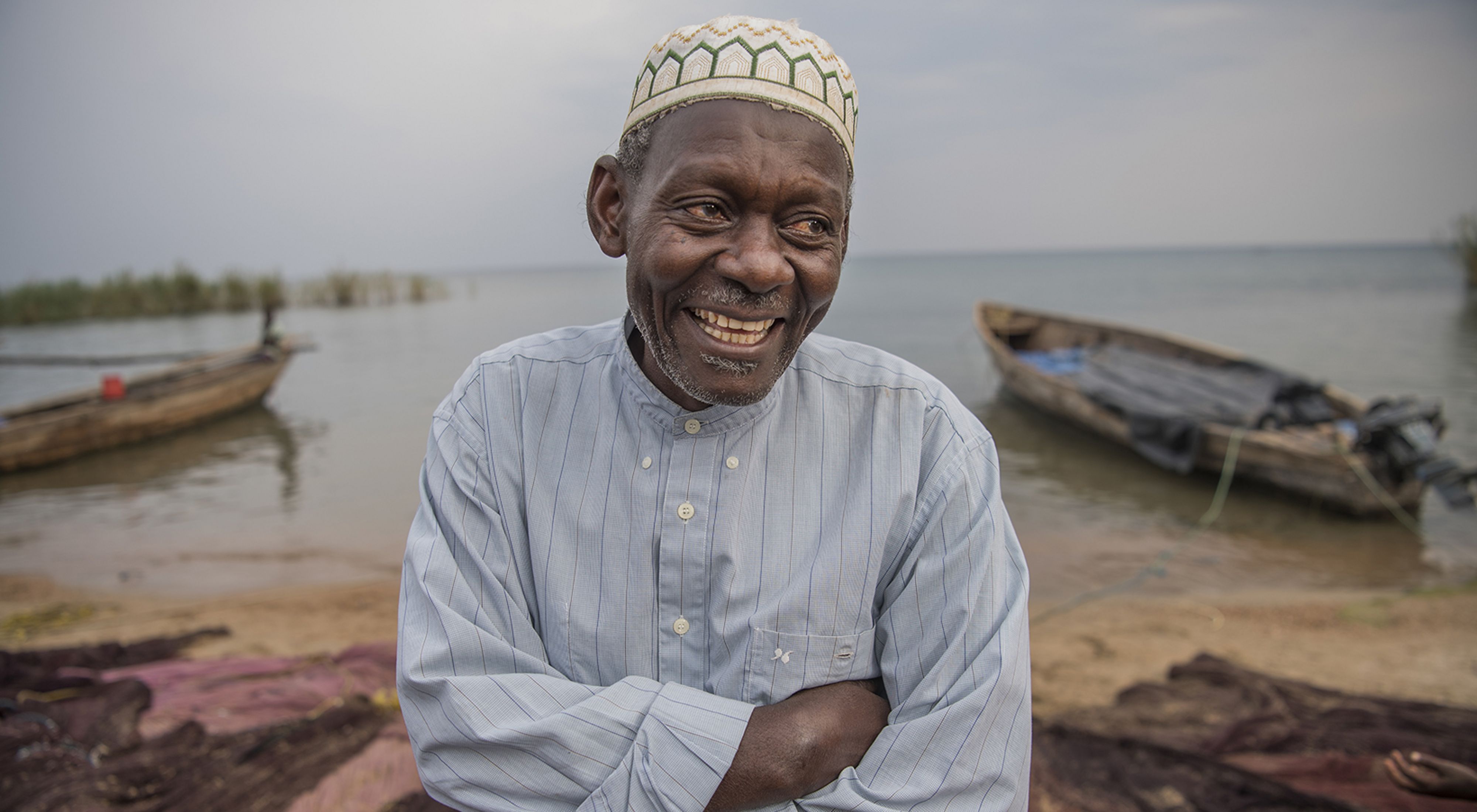On the shores of Lake Tanganyika in western Tanzania, life moves fast.
Women in colorful clothing hurry around a fishing boat as it arrives at dawn to scoop piles of silver sardines into their empty buckets. Schoolchildren spill out of their classrooms and fly through the village for their morning jog. Mothers quickly wash their families’ clothes in buckets at their feet with babies watching silently from their backs. Friends on motorbikes tear down the village’s main dirt path on their way to a wedding, honking their horns in celebratory satisfaction.
It’s with these bustling communities that TNC and health services organization Pathfinder International launched the Tuungane Project. The project takes a 360-degree approach to tackle the interconnected challenges of population, health and the environment to create healthier families, fisheries, and forests.
Hear from some of the people who live in three villages just north of the Mahale Mountains about life, their challenges, and the impact of the Tuungane Project.
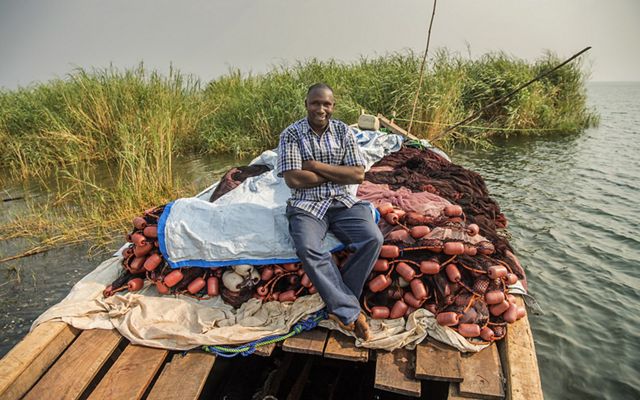
“From my heart, I feel hopeful because I have already seen changes. For example, in this zone, beach seines are almost completely gone. And the high dagaa catch we have seen this season is probably due to the reduced use of beach seines.” — Richard Nkayamba, 41, Buhingu Village Beach Management Unit (BMU) leader. Thirteen of the 17 coastal villages within the Tuungane Project area have established BMUs to enact their own sustainable fishing regulations, such as outlawing beach seines that drag in juvenile fish, eggs and anything else in their path.

“I saw many women suffering from lack of education. I knew it wouldn’t be a paid job, but I wanted to help other women.” — Farida Katunka (right), with fellow community health worker Sikitu Mustafa (left). Community health workers are volunteers who receive training via the Tuungane Project and then go door-to-door educating men and women about reproductive health.
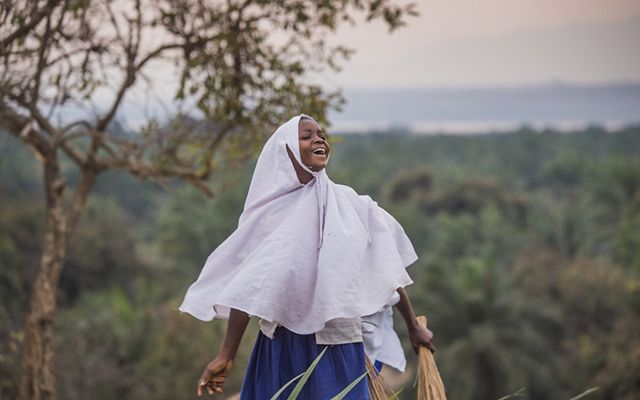
“One of the things that makes me so eager to invest [via the community conservation bank] is that I see my kids are very smart and I don’t want them to miss school. I am investing in them.” — Mnyonge Oredi, father of six, including 10-year-old Sifa, pictured here. Community Conservation Banks (COCOBAs) provide the opportunity for community members without access to traditional banks to save money and access small loans for environmentally friendly enterprises.
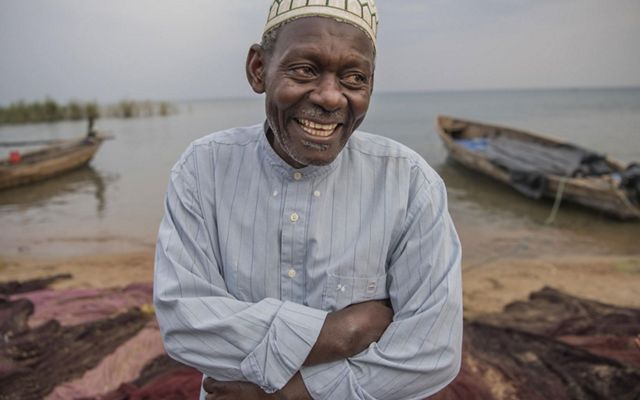
“After attending several seminars organized by the Tuungane project, I realized that this community was going to have a problem very soon. This really touched my heart. And I thought that if other villages didn’t know about these issues, it would affect my resources too.” — Bakari Itembe, Katumbi Village. Bakari spread the word about the importance of forming Beach Management Units, protecting fish breeding sites, and creating fishing regulations to neighboring villages.

“I was so disappointed every time I saw beach seining – it was catching larvae, fry…everything. When people caught fish that were too small, they just threw them on the ground. Before the BMU, I had no idea how to deal with this. But when the BMU came to this village, it was as if my dreams had been answered.” — Sadoki Nfukamo (left), a volunteer fisheries data collector for the Buhingu Village BMU, with fellow data collector James Anton (center) and TNC’s Peter Limbu (right). Through the Tuungane Project, many BMU data collectors are now able to submit reports via tablets into a centralized system that can provide communities with a comprehensive look at trends in fish catch data to inform fisheries management decisions.
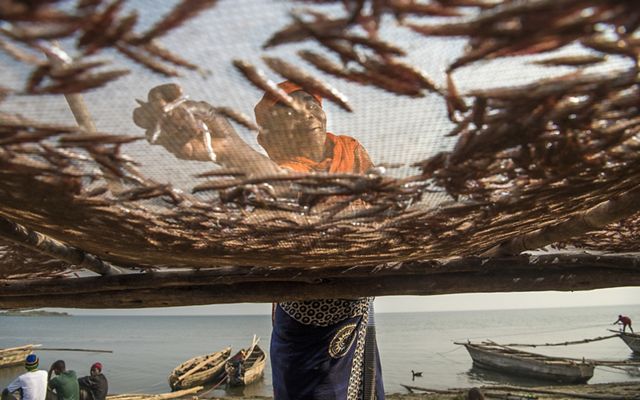
“I sell my dagaa in another village. There, the catch has not been as good, so I can get a higher price. I walk four hours each way, twice a week, with a bag of dagaa on my head. I get tired.” — Veronica Kondo Mwatano, 47, pictured here using a drying rack she rents from the Buhingu Village BMU. Drying racks ensure that the fish dry evenly and don't become contaminated by the sand, creating a better quality product that fetches a higher price.

“My favorite skit is the one about safe delivery, because many pregnant women lose their lives here. They die simply from a lack of awareness.” — Shukuru Hamisi (in green), a volunteer for the Tuungane drama group. In villages where illiteracy rates are around 20 percent, this participatory theater is a creative way to share messages about health, fisheries, and deforestation.

“Every house has a kid. So when you collect the kids at school, you can easily spread the education through many homes.” — Mohammed Katunka, teacher and Model Household Motivator, who educates his students about Model Household principles, and pictured here with his wife, Ashura, and daughters Haijira and Hailati. More than 300 households have volunteered to be “Model Households,” serving as local learning sites for healthy behaviors such as using a hand-washing station and practicing sustainable farming techniques.
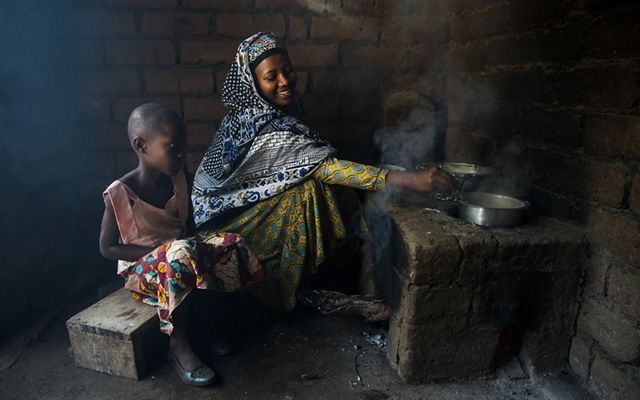
“Now I don’t have to walk to the lake during the rainy season. It would take a total of 5 hours a day to collect water. I wasted a lot of time fetching water, that otherwise I would have spent working and making money. My daughters also come with me, and they can now use that time to play or study.” — Ashura Katunka, Model Household Motivator on her rainwater harvesting system.
